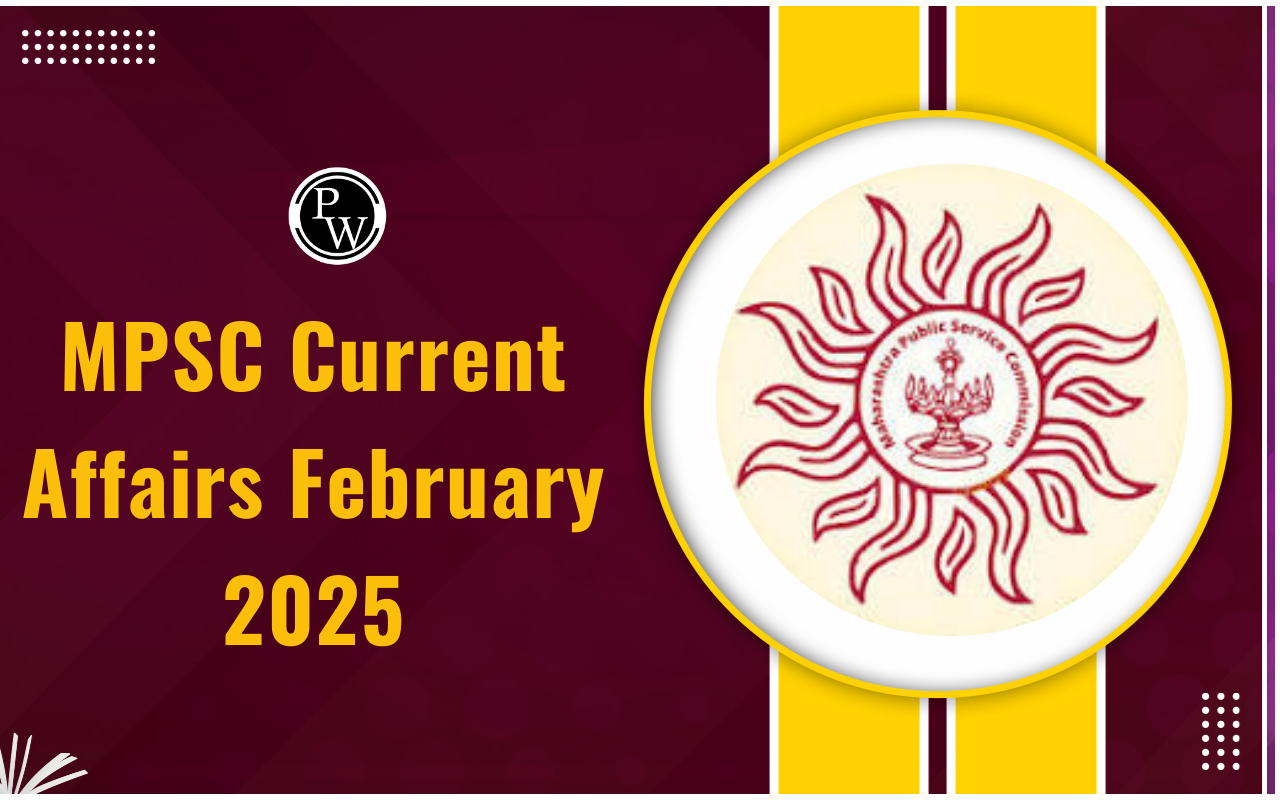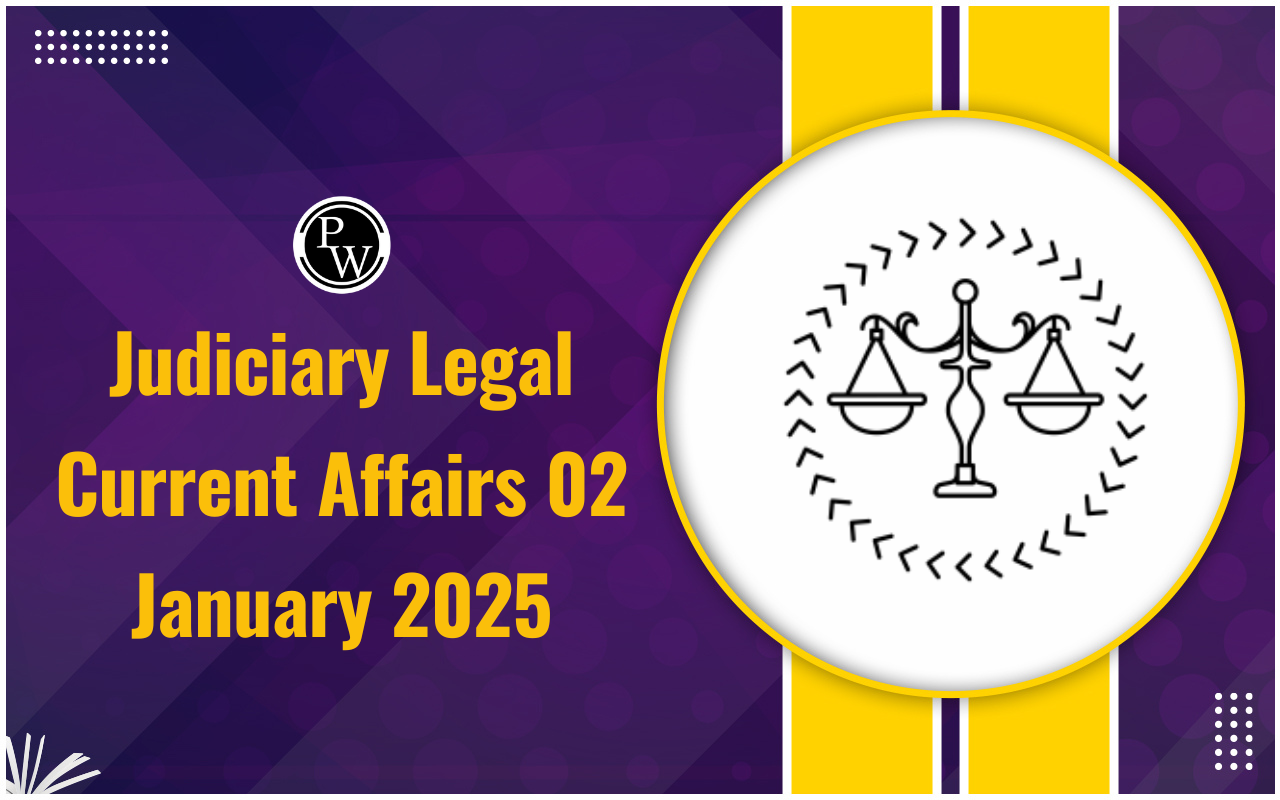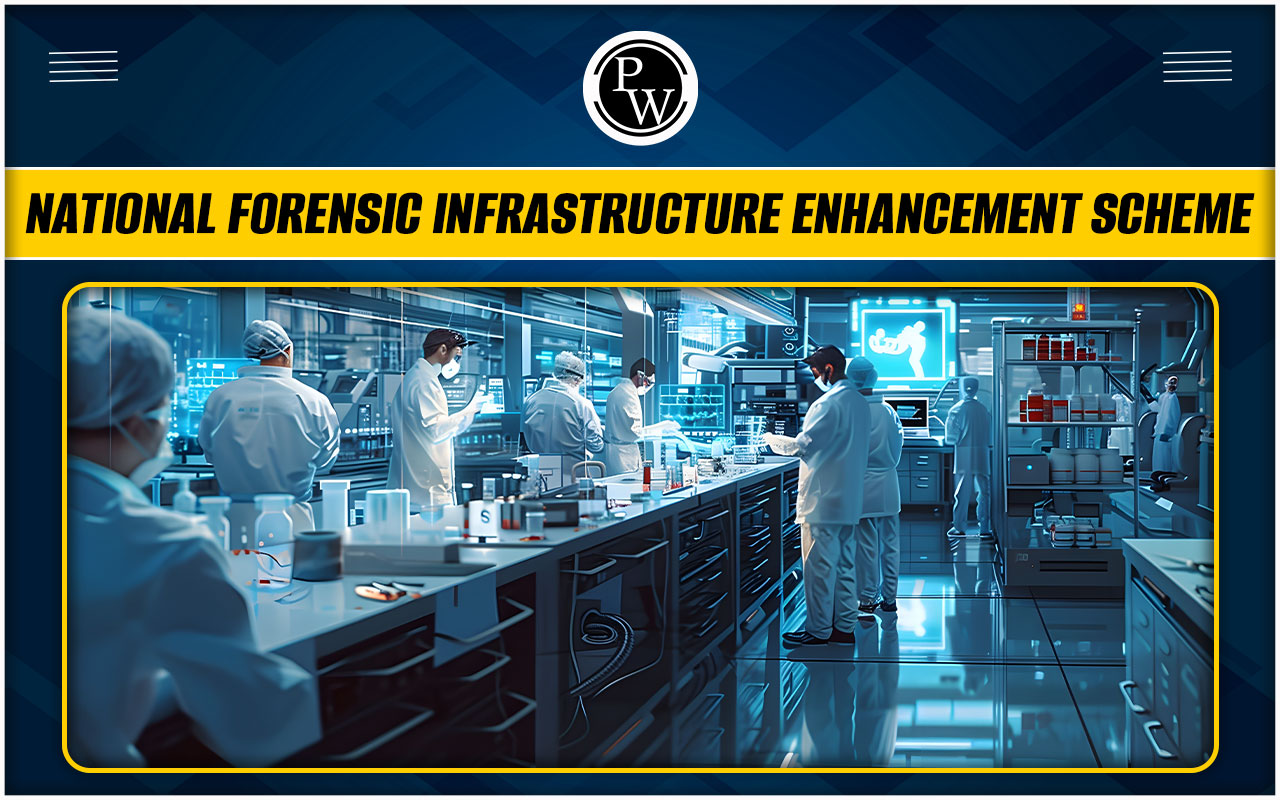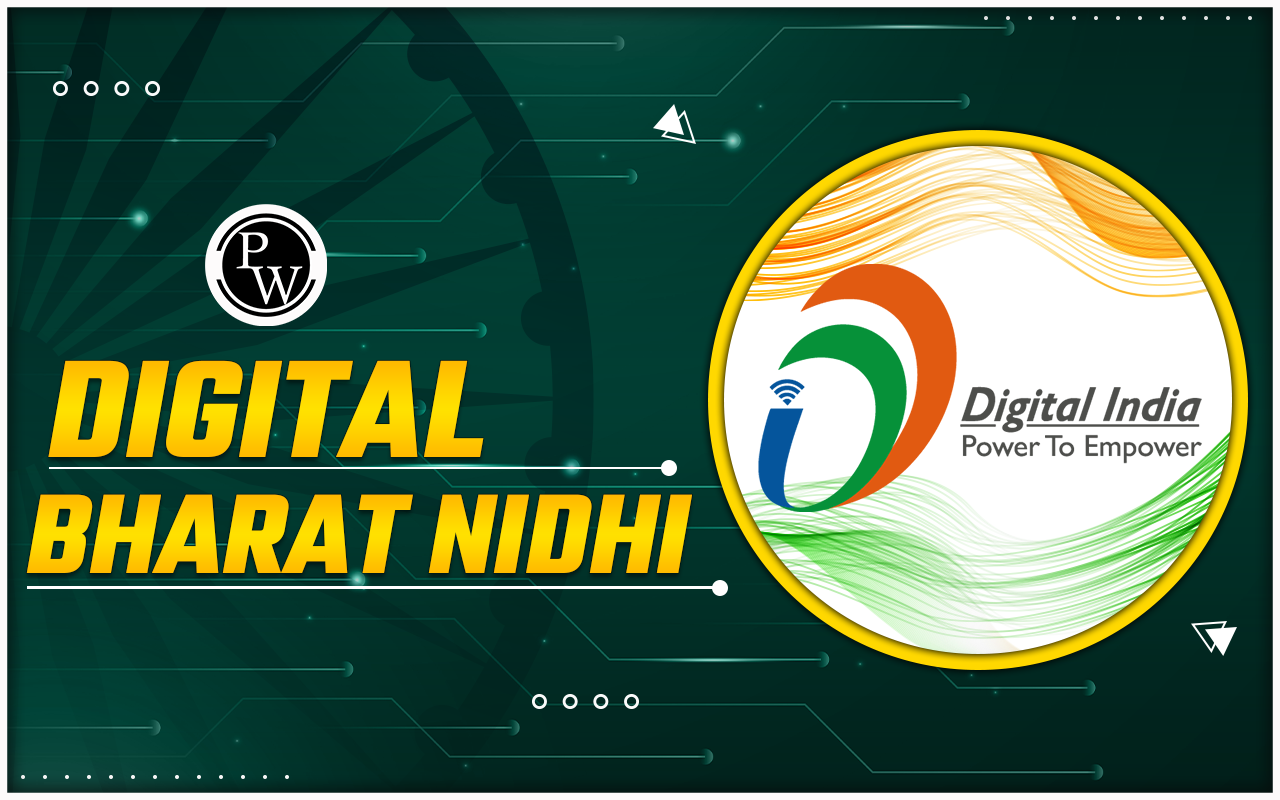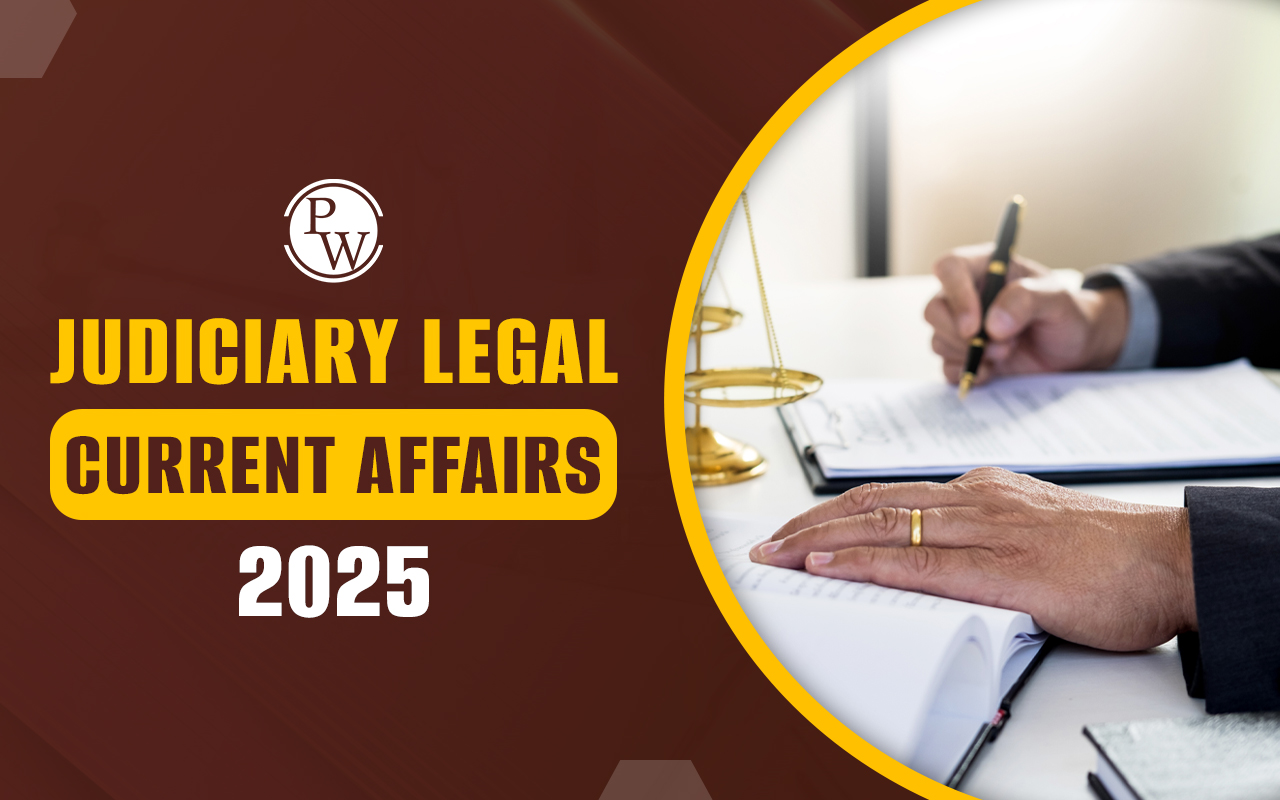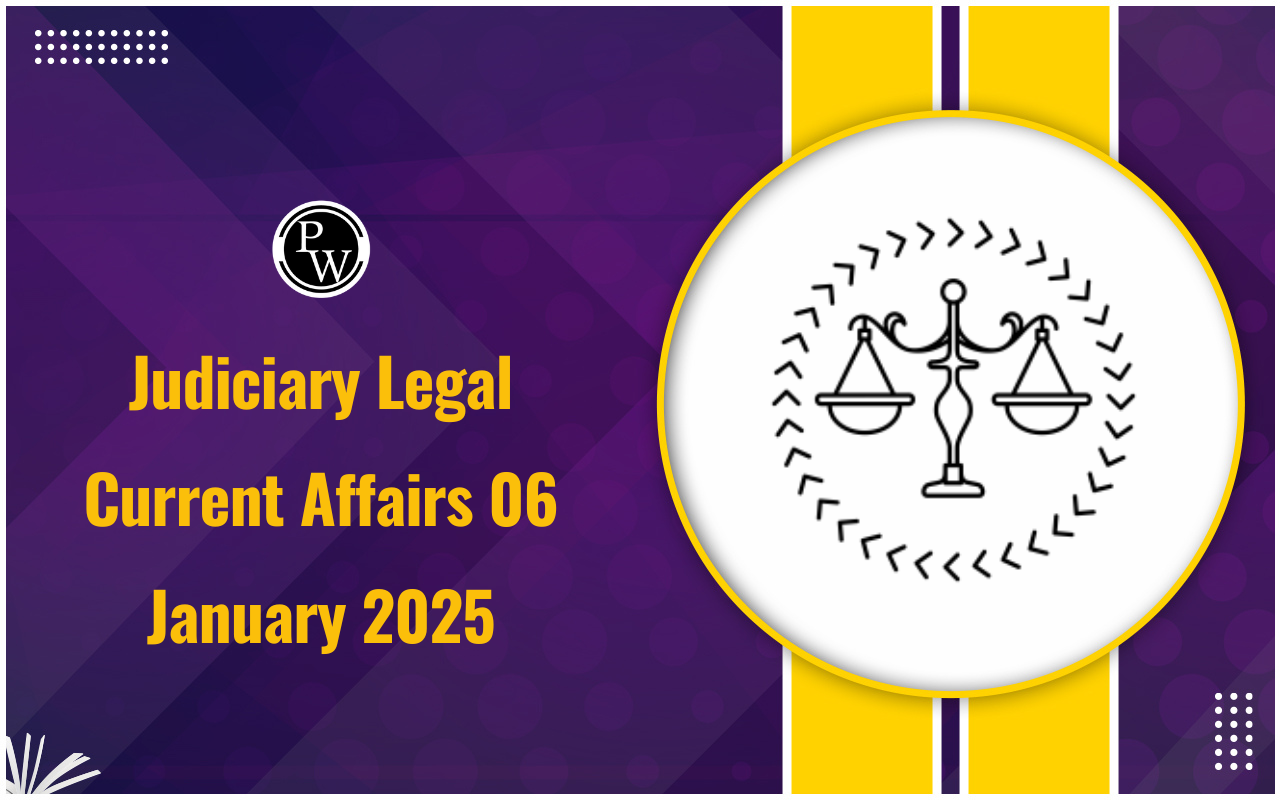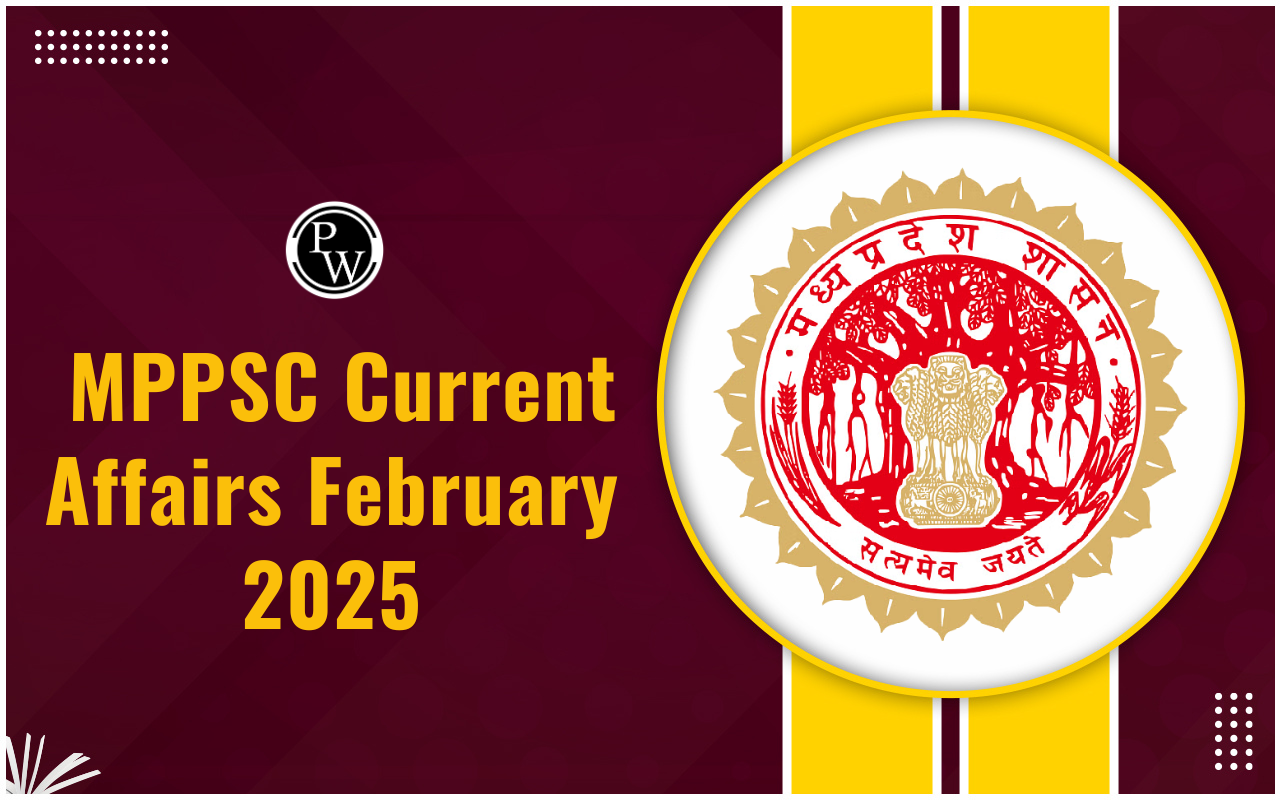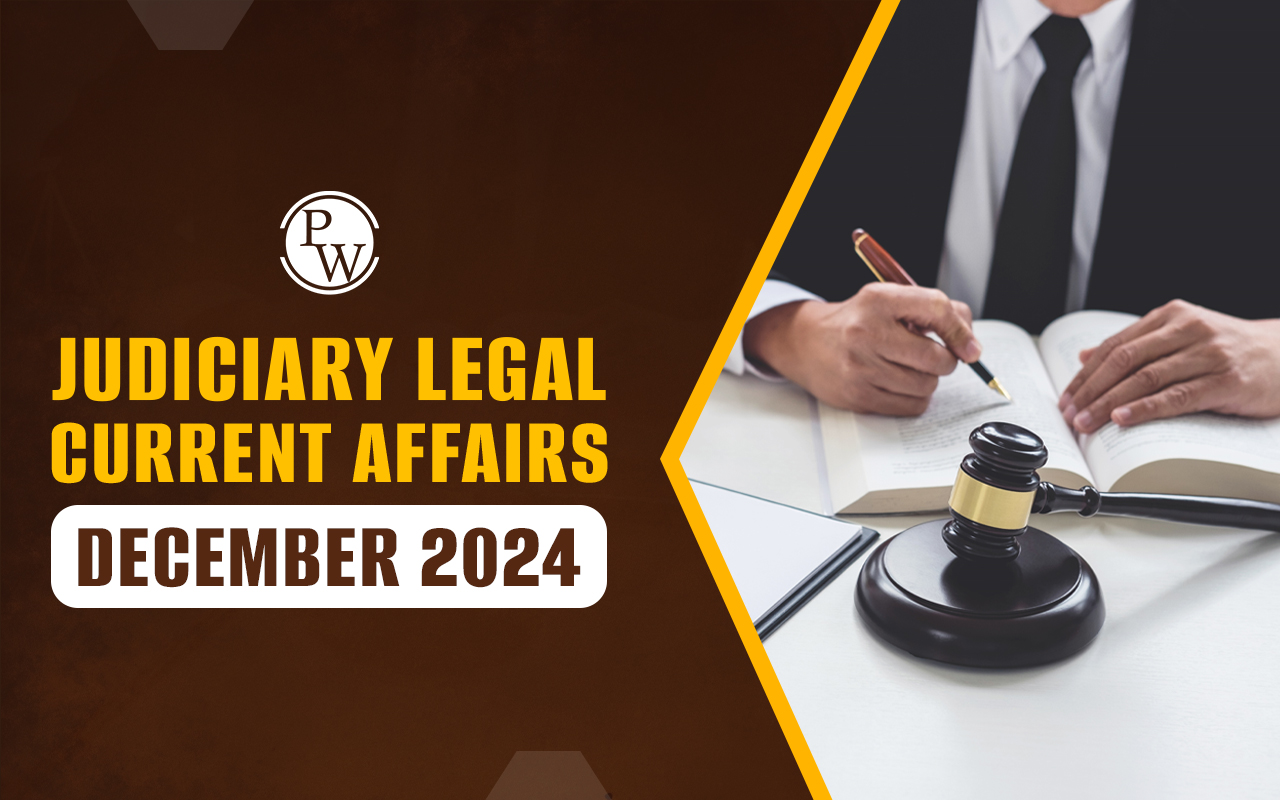
The Judiciary Legal Current Affairs 16 October 2025 consist of topics like Court on Firecrackers, Murder of Daughter in Law, Court Orders 90 lakhs Alimony, Hostile Witness with Legal Current Affairs MCQs for Judicial Service Exam 2025. The Judiciary Legal current affairs helps in preparation for state specific judiciary exams, below is the detailed summary of the current affairs.
Judiciary Legal Current Affairs 16 October 2025 Court on Firecrackers
-
Case Name: MC Mehta v. Union of India
-
Bench: Chief Justice of India BR Gavai and K Vinod Chandran
-
Forum: Supreme Court
-
Order:
-
The Court held that while the right to celebrate festivals is protected, it cannot override the right to life and a pollution-free environment under Article 21 of the Constitution.
-
The Court allowed a limited relaxation of the blanket ban on firecrackers—permitting only NEERI-certified green crackers to be sold and used in the National Capital Region for a restricted period and within fixed hours during Diwali, under strict supervision and licensing. It directed that barium-based and joint crackers remain banned, and that enforcement agencies must ensure compliance through monitoring, QR-code verification, and penalties for violations. The Court clarified that this relaxation is temporary and on a trial basis, emphasizing that environmental protection and public health remain paramount.
Judiciary Legal Current Affairs 16 October 2025 Murder of Daughter in Law
-
Case Name: State of Madhya Pradesh v. Janved Singh
-
Bench: Justices Sanjay Kumar and Alok Aradhe
-
Forum: Supreme Court
-
Held:
-
In this case the Court held that the acquittal of the father-in-law in the murder of his daughter-in-law could not stand because the circumstantial evidence formed a complete, unbroken chain pointing to his guilt, and that his false explanation (claim of electrocution) along with the fact that the death occurred inside his house shifted the burden under Section 106 of the Evidence Act onto him, which he failed to discharge.
-
The Court, therefore, reversed the High Court’s acquittal, restored the conviction under Section 302 IPC (murder) IPC, and held that the chain of circumstantial evidence was complete, proving the accused’s guilt beyond reasonable doubt.
Judiciary Legal Current Affairs 16 October 2025 Court Orders 90 lakhs Alimony
-
Case Name: X v. SY
-
Forum: Patna High Court
-
Held:
-
In a recent ruling, the High Court ordered a husband to pay ₹90 lakh as permanent alimony to his wife upon the dissolution of their 2010 marriage. The bench emphasized that it is the court's duty to ensure that the wife lives with dignity and comfort, not in penury, and that she should not be left to live in discomfort. The court directed the husband to pay the amount within six months, with simple interest at 6% per annum in case of default. Additionally, the wife remains free to file an independent application under Section 25 of the Hindu Marriage Act, 1955 for further determination of permanent alimony, as the court does not become functus officio after passing a decree of divorce.
-
The Court emphasized the need for the wife to live with dignity and comfort.
Judiciary Legal Current Affairs 16 October 2025 Hostile Witness
-
Case Name: ShivKumar @Baleshwar Yadav v. State of Chattisgarh
-
Bench: Justices BV Nagarathna and KV Viswanathan
-
Forum: Supreme Court
-
Held:
-
The Court upheld the conviction and life sentence of the appellant for the kidnapping and sexual assault of a minor girl from a Scheduled Caste community. The appellant was found guilty under various sections of the Indian Penal Code (IPC), the Protection of Children from Sexual Offences (POCSO) Act, and the Scheduled Castes and Scheduled Tribes (Prevention of Atrocities) Act (SC/ST Act).
-
Key Aspects of the Judgment:
-
Conviction and Sentence Upheld: The Supreme Court dismissed the appeal filed by Shivkumar alias Baleshwar Yadav, affirming the judgment of the Chhattisgarh High Court and the trial court. The appellant was convicted under sections 363 (kidnapping), 366 (abduction), 376 (rape), and 506 (criminal intimidation) of the IPC, section 4 of the POCSO Act, and section 3(2)(v) of the SC/ST Act. The trial court had sentenced him to life imprisonment, which was upheld by the High Court.
-
Evidence and Witness Testimony: The Court emphasized the importance of credible and consistent testimony. It noted that the victim's account was corroborated by medical and forensic evidence, including a fresh hymenal tear and the presence of semen on the victim's and the accused's clothing. Additionally, the victim's father (PW-1) had initially corroborated the prosecution's case but was later declared hostile by the prosecution. The Court criticized this decision, stating that small or insignificant omissions should not be the basis for declaring a witness hostile. It emphasized that such declarations should only be made when a witness completely departs from the prosecution's case or exhibits clear hostility.
-
Application of SC/ST Act: The Court reaffirmed that under section 3(2)(v) of the SC/ST Act, mere knowledge of the victim's caste is sufficient to attract the enhanced punishment, as per the amendment made in 2016. In this case, the appellant was aware of the victim's caste, as he was a neighbor and well-acquainted with her family. Therefore, the Court upheld the application of the SC/ST Act in this case.
-
Critique of Hostile Witness Declarations: The Court expressed concern over the casual and routine practice of declaring witnesses hostile. It observed that courts should exercise discretion under section 154 of the Indian Evidence Act judiciously and only in exceptional circumstances. The Court cautioned against the indiscriminate granting of permission to cross-examine one's own witness, emphasizing the need for careful scrutiny of the circumstances.
-
Conclusion:
-
The Court's judgment in this case underscores the importance of credible evidence and the judicious application of legal provisions. It highlights the need for careful consideration before declaring a witness hostile and reaffirms the significance of protecting the rights of victims, especially those from marginalized communities.
.
Legal Current Affairs MCQ for Judiciary Exam 2025
Q1- Which of the following is covered under “relevancy of facts” in the Indian Evidence Act, 1872 (hereinafter IEA)?
-
-
Facts in issue only
-
Facts relevant to facts in issue
-
Both facts in issue and relevant facts
-
Opinions of witnesses
-
Answer: c
Q2- Under the Indian Evidence Act, which of the following statements regarding hearsay evidence is correct?
-
-
It is always admissible
-
It is generally inadmissible
-
It is admissible if given by an expert
-
It is admissible in civil cases only
-
Answer: b
Q3- Which section of the Indian Evidence Act defines “opinion of experts”?
-
-
Section 45
-
Section 46
-
Section 47
-
Section 48
-
Answer: a
Q4- Confession made to a police officer is:
-
-
Admissible as evidence
-
Admissible only if in writing
-
Inadmissible under the Indian Evidence Act
-
Admissible only with magistrate’s approval
-
Answer: c
Q5- Which section of the Indian Evidence Act deals with the presumption as to documents produced as evidence?
-
-
Section 79
-
Section 80
-
Section 81
-
Section 82
-
Answer: a
Explore the Judiciary Courses 2025 to access essential resources for Judiciary exam preparation, including detailed insights and strategies. Dive into the Judiciary 2025 for structured courses and focused study plans designed to help aspirants excel in their exams.
Judiciary Legal Current Affairs 2025 FAQs
How many months of current affairs is required for a Judiciary Exam?
Where can I study current affairs for the Judiciary?
How can I prepare for Judiciary current affairs?


